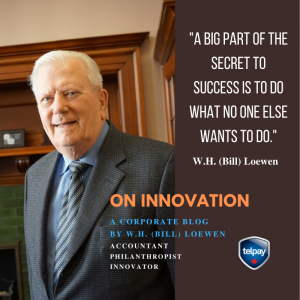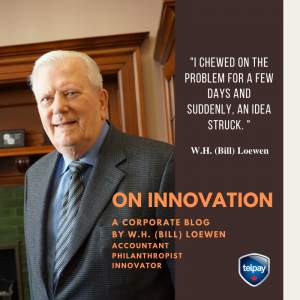 In the early days of the computer era, there were lots of predictions about where these new devices would lead us. Many are memorable because they were wrong. Someone wrote a book titled “The End of Work”. For some of us that don’t seem to have worked.
In the early days of the computer era, there were lots of predictions about where these new devices would lead us. Many are memorable because they were wrong. Someone wrote a book titled “The End of Work”. For some of us that don’t seem to have worked.
Comcheq drew predictions from others in the computer services businesses. There was no way Comcheq was supposed to be able to survive with the banks as its competitor. We were viewed as the garbage collectors of the computer industry because we provided a service no one else wanted to. But survive we did and eventually thrived because the banks who provided other types of services disappeared long before Comcheq was sold to CIBC.
A big part of the secret to success is to do what no one else wants to do. It turned out that even the banks found out that they didn’t want to do payrolls and for a couple of reasons: it interfered with their processing of their banking information and it took too much of their programming resources to maintain their system
A second key factor is to know what you are doing. Having first-hand experience in the whole cycle of the payroll operation, week by week, year by year, was instrumental. I wasn’t guessing at what customers needed. A third component necessary for success is the willingness to learn. I also learned to listen to the customer when I lost one of our first customers for not doing so. There were endless variations in customer’s needs that could be satisfied once you had the data needed to do it.
I spent a lot of time listening to customers and to employees that had listened to customers. I developed a rule that if I heard a request once, I would make a note. If I heard it twice, I looked for a solution.


